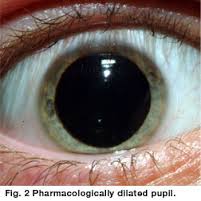记忆方法
1. longitude latitude.
2. latitude => lat- "wide".
3. dis- "apart" + lat- "wide" => dilate.
4. latum, latus (pp. of irregular verb ferre) => lat- "carry, bear".
2. latitude => lat- "wide".
3. dis- "apart" + lat- "wide" => dilate.
4. latum, latus (pp. of irregular verb ferre) => lat- "carry, bear".
中文词源
dilate 膨胀
di-, 分开,散开,来自dis-变体。-lat, 变宽,膨胀,词源同latitude, lateral. 即扩散,膨胀。
英语词源
- dilate
-
dilate: [14] Latin lātus meant ‘wide’ (it probably came from an earlier *stlātos, represented in Church Slavonic stilati ‘spread out’, and has given English latitude). It was used with the prefix dis- ‘apart’ to form the verb dīlātāre ‘expand, extend’, which English acquired via Old French dilater. The word has two English nominal derivatives: dilatation [14], from late Latin dīlātātiō, now mainly restricted to medical contexts, and dilation [15], an English formation.
=> latitude - dilate (v.)
- late 14c., from Old French dilater, from Late Latin dilatare "make wider, enlarge," from dis- "apart" (see dis-) + latus "wide" (see latitude). Related: Dilated; dilating.
权威例句
- 1. At night, the pupils dilate to allow in more light.
- 到了晚上,瞳孔就会扩大以接收更多光线。
- 2. If there were time, I could dilate upon this subject.
- 假如有时间, 我可对此题目加以详述.
- 3. The Doctor's learnedness would be a subject to dilate on.
- 而这位博学的学识是一个应该详加论述的话题.
- 4. If there were time, I could dilate on the subject.
- 要是有时间, 我可以详细谈谈这个问题的.
- 5. If I had time, I could dilate on this topic.
- 如果我有时间, 我就可以详谈这个话题.

